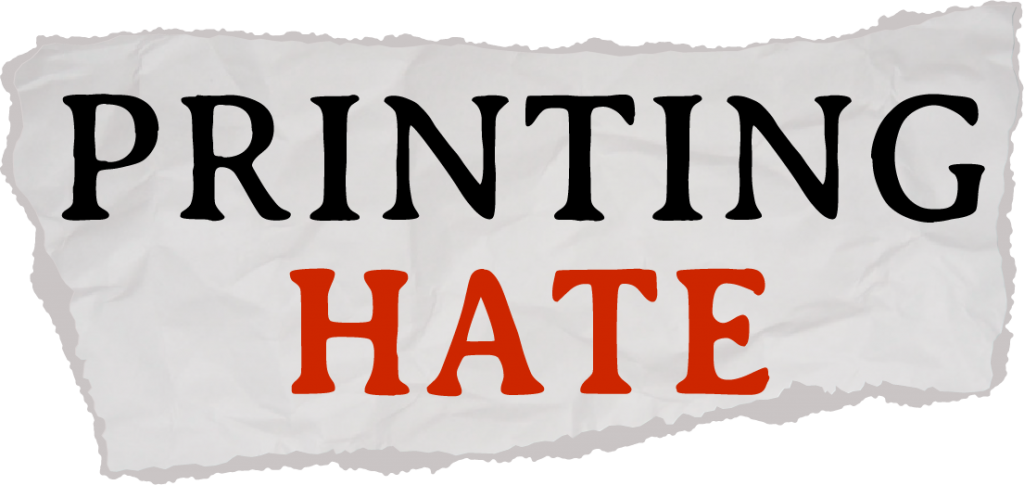By Hannah Ziegler, Tolu Talabi and Viviane Stackhouse
When it came to writing about lynching, Black and white newspapers presented their readers with starkly different perspectives, a Howard Center for Investigative Journalism review found.
The Black press highlighted how lynchings were part of a broader social and political movement for equal rights in the 20th century. They used more direct language describing the violence of lynching and offered broader context about lynchings by addressing topics such as Jim Crow laws and the Civil Rights Movement.
White newspapers, in contrast, would portray lynching victims as dehumanized “Black brutes,” often proclaimed guilty before any trial, and the lynchings were described as isolated events devoid of broader political and social context. Many white newspapers downplayed the severity of lynching through shorter articles or reporting that suggested lynchings were justified, the Howard Center found.
The Howard Center examined top narratives from 7,162 articles extracted from the Library of Congress Chronicling America newspaper database, a sample that included 1,045 articles from African-American newspapers. Since Black newspapers comprise about 7% of Chronicling America’s overall collection, the Howard Center sought additional sources to expand the sample.
The research is part of a broader review of 60,000 pages of lynching newspaper coverage from 1789 through 1963 using a variety of data tools. The Howard Center examined the prevalence of narratives by training a computer to extract the top two-word phrases per decade from the sample of articles.
Some of the most common two-word phrases used in the Black press through the decades included “colored people,” “mob violence” and “lynch law.” The phrase “mob violence” stood out in the Black press coverage but wasn’t a prominent phrase in the white newspapers during the same time period.
In the 1910s, “mob violence” was the second most prevalent phrase in Black news coverage, and remained in the top 10 of narratives through the 1940s. By contrast, mob violence was a top narrative for white newspapers in the 1910s but lost its prominence in the 1920s and 1930s.
This work is a collaboration of the Howard Center for Investigative Journalism and Capital News Service at the University of Maryland, the University of Massachusetts at Amherst, Morgan State University, Hampton University, Howard University, Morehouse College, North Carolina Agricultural & Technical State University and the University of Arkansas.
The Wisconsin Weekly Blade, a Black newspaper, wrote on Feb. 6, 1919, “The maddened mob is satisfied as long as it lynches somebody, and that somebody was a Negro in 58 of the 62 cases of mob violence reported for the year just ending.” The Northwest Enterprise, also a Black newspaper, wrote on Dec. 6, 1940, “Mr. White opened his speech at the banquet on Monday night (By giving a background of the deep south) with its mob violence, lynchings and race hatred etc.”
By contrast, some white press coverage framed lynching victims as guilty before any trial was held and printed sensationalized accounts of alleged sexual assaults, or “outrages,” of white girls and women.
The white press lynching articles often used passive voice, making it unclear who was responsible for the crime. For example, news coverage in the 1890s described lynchings with phrases such as “by a mob,” “was taken from,” or “the lynching of,” indirect language that danced around who is to blame for a lynching.
The frequent presence of “Jim Crow” as a narrative is one example of Black newspapers connecting lynching news to broader social trends. Jim Crow laws were used from the post-Civil War era through the 1960s to legalize and enforce racial segregation in the U.S.
The Black press used the phrase “Jim Crow” a total of 39 times in association with lynching coverage in articles published between 1910 and 1969. In predominantly white newspapers, “Jim Crow” was infrequent in the sample, used a total of nine times from the 1850s through the 1940s.
“Civil rights” appeared a total of 15 times from 1910 through the 1960s in the sample of predominantly white newspapers. This phrase first appeared in Black press coverage in the 1910s, but picked up greatly in the 1940s and 1950s. In the 1940s, the Black press referred to “civil rights” in association with a lynching 42 times.
The frequency of civil rights in this context fits into broader scholarship about the Black press as a strong advocate for social justice. Ida B. Wells used her newspaper, Memphis Free Speech, to document and condemn lynching. White businessmen threatened to lynch the owners of her newspaper, creditors commandeered the newspaper’s offices and sold the equipment.” Her newspaper’s office was eventually burned down by a white mob in Memphis, Tennessee.
Passage of state and federal laws to criminalize lynching was a top priority for Black leaders during the early 20th century and “anti lynching” emerged as a top two-word phrase between 1920 and 1949 in the Howard Center sample of Black newspapers. In contrast, “anti lynching” was rarely mentioned in the white press news sample until the 1920s, when it rose as the 60th most prominent phrase, according to the Howard Center analysis. Congress introduced anti-lynching legislation more than a dozen times between 1900 and 1940.
Among the white press, common two-word phrases used to describe lynchings in the 1890s included “lynch law,” “negro lynched,” “grand jury,” “county jail,” “mob lynched” and “negroes lynched.”
The most consistent overlap between the white and Black press’ lynching coverage comes from phrases such as “grand jury” and “county jail” referencing these acts of violence. While the white press used “grand jury” just enough for it to appear in the top 10 two-word phrases for many decades, the Black press’ use of “grand jury” was a top phrase for most decades. “Grand jury” was significant since it often described efforts to prosecute the lynch mob.

